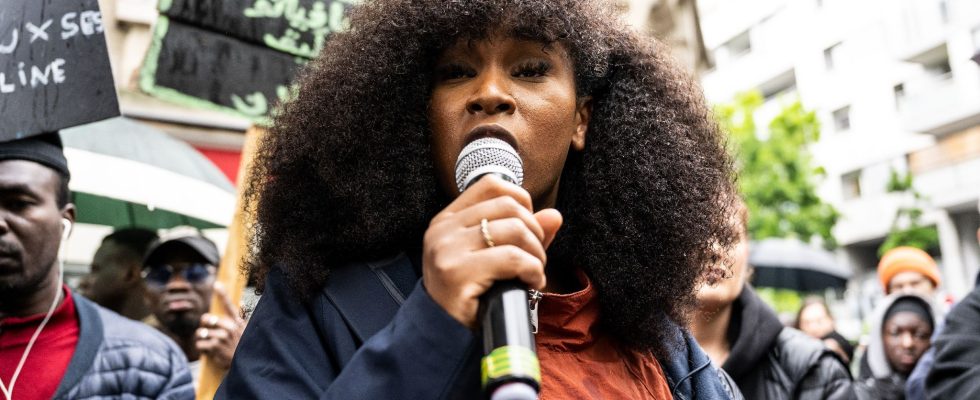After the cancellation of a march and a rally to commemorate the seventh anniversary of the death of Adama Traoré, this Saturday July 8, around thirty “citizen marches”, “marked with “mourning and anger”, against the Police violence will unfold in many French cities, after several days marked by riots.
Nahel’s death at the end of June and the urban violence that followed, unprecedented since 2005, cast a harsh light on the ills of French society, from the difficulties of working-class neighborhoods to the stormy relations between young people and the police. Since June 27, more than 3,700 people have been taken into custody, leading to 400 incarcerations, according to figures from the Chancellery.
Two gatherings for Adama banned
Seven years after the death of Adama Traoré, a young black man who died shortly after his arrest by the gendarmes in July 2016, a commemorative march was scheduled for Saturday July 8 in the afternoon between Persan and Beaumont-sur-Oise, in the north from Paris. It was banned by the prefect of Val-d’Oise. A decision validated by the administrative court of Cergy-Pontoise. The latter believes that “although the violence has decreased in recent days, its extremely recent nature does not allow us to assume that any risk of disturbing public order has disappeared”.
Adama Traoré’s sister, a figure in the fight against police violence Assa Traoré then called for the rally to be moved to Place de la République in Paris at 3 p.m., to shout “to the whole world that our dead have the right to exist , even in death. But this gathering was also banned by order this Saturday morning by the Paris police headquarters.
“The government has decided to add fuel to the fire” and “not to respect the death of my little brother”, denounces Assa Traoré, evoking “a total lack of respect”. The cancellation of this rally in Place de la République has not yet been confirmed by the collective La Vérité pour Adama.
“In-depth reform of the police”
In this particularly tense context between the government and the demonstrators, about thirty other rallies against police violence should be held in the country: in Lille, Marseille, Nantes, Strasbourg, but also in smaller municipalities such as Ancenis, Epinal, La Roche-sur-Yon, Challans or Charleville-Mézières.
Nearly a hundred associations, unions and political parties classified on the left, including LFI, EELV, CGT and Solidaires, called for these “citizen marches” to denounce policies deemed “discriminatory” against working-class neighborhoods. These organizations mobilized “for the maintenance of public and individual freedoms” demand “an in-depth reform of the police, their intervention techniques and their armament”.
Government spokesman Olivier Véran criticized these organizations on Friday, of which, according to him, “the only proposal” is “to call for demonstrations on Saturday in the big cities which have not yet recovered from the looting”. He denounces in particular the responsibility of elected officials, including those of rebellious France, who called to join the forbidden march of Beaumont, accusing them of leaving “the republican arc”.
